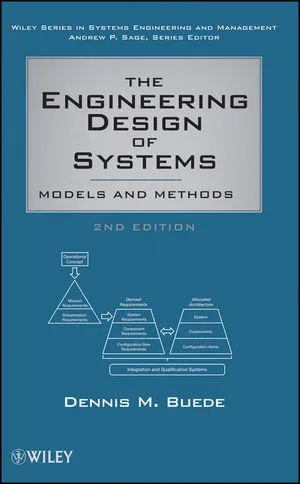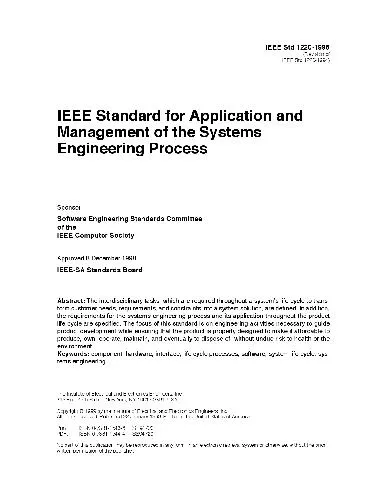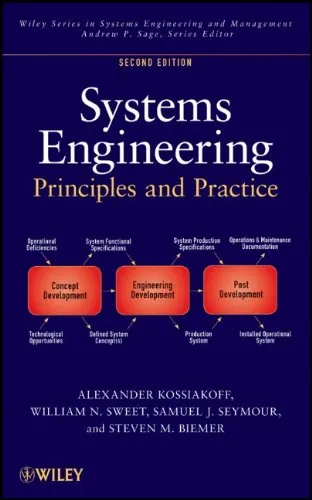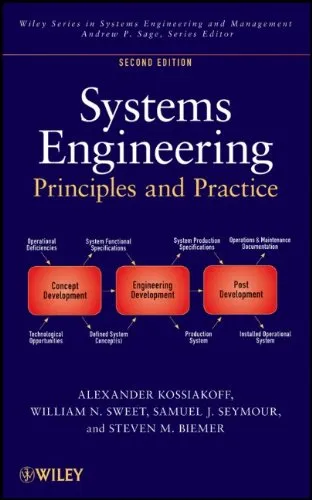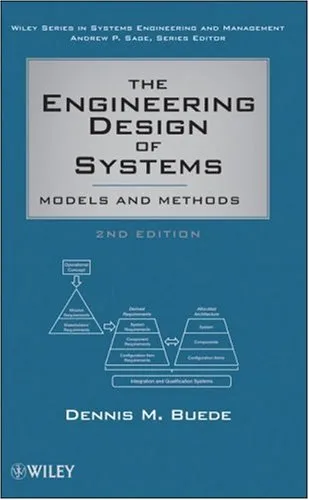The Engineering Design of Systems: Models and Methods, Second Edition
4.0
Reviews from our users

You Can Ask your questions from this book's AI after Login
Each download or ask from book AI costs 2 points. To earn more free points, please visit the Points Guide Page and complete some valuable actions.Related Refrences:
Welcome to the world of systems engineering through the lens of "The Engineering Design of Systems: Models and Methods, Second Edition". This comprehensive volume is an invaluable resource for both aspiring and seasoned engineers who seek to deepen their understanding of systems engineering principles and applications. Authored by Dennis M. Buede, this book delves into the intricacies of systems design and offers a practical approach to tackling engineering challenges. Below is a detailed introduction to the book, compiled with insights and excerpts that illuminate its core themes.
Detailed Summary of the Book
The second edition of "The Engineering Design of Systems" stands as a fundamental treatise in systems engineering, bridging theoretical concepts with real-world applications. The text provides a chronological journey through the systems engineering lifecycle, offering readers detailed methodologies and models for effectively designing complex systems. One of the key strengths of this edition is its inclusion of contemporary methods and tools that reflect advances in technology and engineering practices. Buede’s approach integrates both the technical and human elements of systems design, emphasizing the importance of interdisciplinary collaboration.
From the establishment of requirements to the final stages of system realization, the book guides its readers with precise explanations and structured frameworks. It introduces a variety of modeling techniques that help in understanding and predicting system behaviors. Moreover, Buede infuses the narrative with updated case studies, providing practical examples of how theory is applied in various industries. Overall, the book serves as both an academic textbook and a professional reference guide, making it a versatile addition to any engineer's library.
Key Takeaways
- Comprehensive coverage of the systems engineering process from conception through deployment.
- Introduction to diverse systems modeling techniques including simulation and optimization.
- Exploration of interdisciplinary collaboration's impact on successful systems design.
- Emphasis on the importance of understanding user requirements and stakeholder needs.
- Inclusion of real-world case studies to illustrate practical applications of systems engineering principles.
Famous Quotes from the Book
"The essence of systems engineering is not the parts, but how they interact together to ensure the whole meets the desired outcomes."
"Engineering a system requires more than just technical prowess; it demands a careful consideration of human and organizational factors."
Why This Book Matters
"The Engineering Design of Systems: Models and Methods, Second Edition" is pivotal in modern systems engineering education and practice for several reasons. First, it offers a structured approach for dealing with the complexity of designing systems in today's fast-paced technological environment. The book underlines the vital role of systems engineering in enabling the design of systems that are robust, adaptable, and capable of meeting complex requirements from diverse stakeholders.
Furthermore, Dennis M. Buede’s work is characterized by its clear exposition of both fundamental and advanced concepts, making it accessible to newcomers while still being deeply insightful for experienced engineers. The inclusion of current methodologies ensures that readers are equipped with the relevant skills needed to address contemporary engineering challenges. By focusing not just on the technological aspects but also on human contributions, the book helps cultivate a holistic understanding necessary for the successful engineering of systems today.
This book stands as a testament to the ongoing evolution of systems engineering, serving as a crucial resource for anyone involved in designing and managing complex systems. Its adoption in academic courses and professional settings alike underscores its importance and its lasting impact on the field of systems engineering.
Free Direct Download
You Can Download this book after Login
Accessing books through legal platforms and public libraries not only supports the rights of authors and publishers but also contributes to the sustainability of reading culture. Before downloading, please take a moment to consider these options.
Find this book on other platforms:
WorldCat helps you find books in libraries worldwide.
See ratings, reviews, and discussions on Goodreads.
Find and buy rare or used books on AbeBooks.
1486
بازدید4.0
امتیاز0
نظر98%
رضایتReviews:
4.0
Based on 0 users review
Questions & Answers
Ask questions about this book or help others by answering
No questions yet. Be the first to ask!
